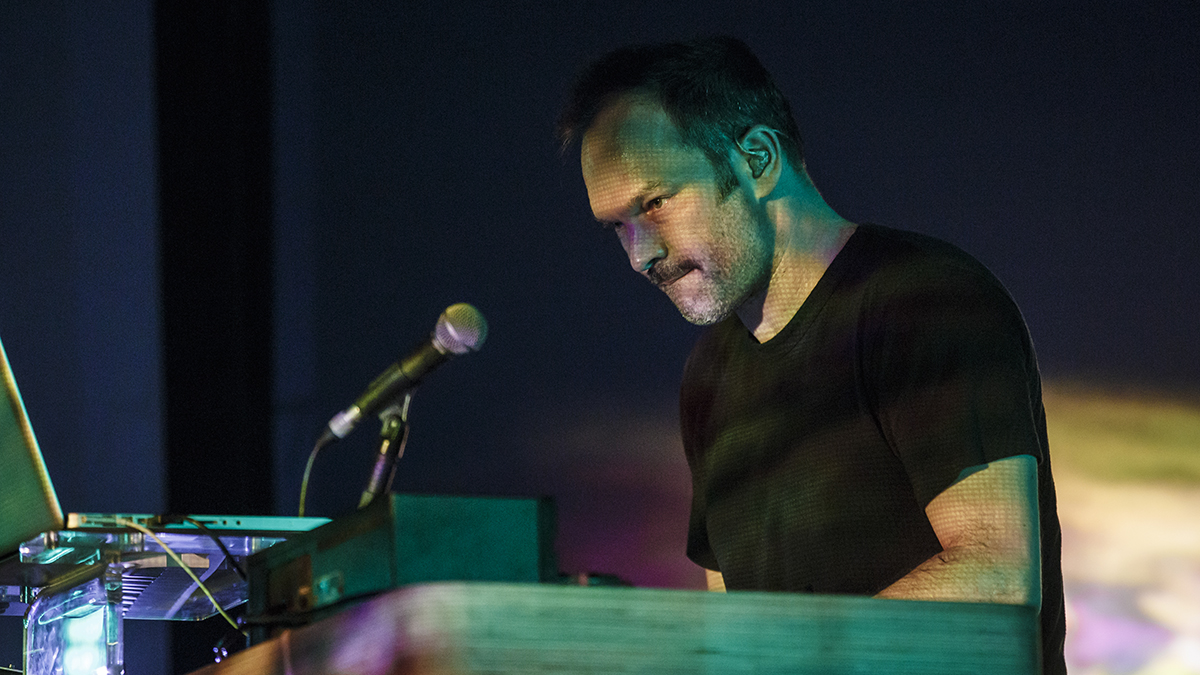Producer Nigel Godrich dismisses “all this Dolby Atmos rubbish” as he says that “stereo is optimum” for mixing music
“I think it’s all a bit of a bluff really,” says ‘the sixth member of Radiohead’

Want all the hottest music and gear news, reviews, deals, features and more, direct to your inbox? Sign up here.
You are now subscribed
Your newsletter sign-up was successful
The music industry may be going doolally for Dolby Atmos right now, but one person who isn’t so psyched about it - and surround formats in general - is Radiohead producer Nigel Godrich.
Godrich voiced his opinions on Jamie Lidell’s Hanging Out With Audiophiles podcast, beginning by saying: “I feel mono is the most reliable audio format that exists, isn’t it? That’s what Stanley Kubrick thought - mixed all his films in mono because if you ever mix a film, wherever you go to watch it, the rooms are always set up differently, and it can be very very disappointing when something that you’ve done in the rear speakers], or is supposed to be happening somewhere, you suddenly can’t hear [because of the room].”
Warming to his theme, Godrich went on to say: “What I do feel about mono, stereo, 5.1… whatever - all this Dolby Atmos rubbish - is that music… you can’t get something that’s in 5.1 to ‘cook’; you never could. That’s one of the problems they’re having with Atmos, actually, is that you can’t master it. You can’t put, like, an overall compression on it, really.”
While some in the audio industry are of the view that Dolby Atmos is the future of music listening, and has the potential to supersede stereo, Godrich clearly isn’t convinced.
“I always used to say that, if you go to see a movie and there’s like an old Rolling Stones track in it, it always sounds fucking amazing,” he explains, “and yet music that is designed for that audio format (the 7.1 or whatever) it’s always… whatever it is it’s not that great, necessarily.
“I think it’s all a bit of a bluff really. I think mono is, obviously, a bit limited, and stereo is optimum - that’s what I think.”
Godrich also discussed an experience he had with Bob Ludwig, a mastering engineer who he says he “loves, very much,” but who failed to convince him of the merits of remixing old records in surround.
Want all the hottest music and gear news, reviews, deals, features and more, direct to your inbox? Sign up here.
“He had a 5.1 demo room when that was all the rage and I was very sceptical and he was like ‘just come and check it out, come and listen’ and I was like ‘OK’,” Godrich recalls.
People are pushing things, and their priority is the technology, not the music.
“I sat down there and he played me one of the things that had been knocking about that had been remixed for 5.1 specifically, which was Rumours by Fleetwood Mac. He put on The Chain - the very famous outro that they used to use for the Grand Prix [on UK TV].
“Anyway, it’s all very exciting and starts building up, and out of nowhere, behind my head, this frigging Hammond organ kicks in, and I was like ‘what the hell is that?’. And he said ‘well, y’know, it’s something they had on the multitrack and they didn’t feel there was enough room in the stereo field in the original mixes, so now that it’s 5.1 they’ve put it in’.
“And I said ‘OK, that’s enough for me’, that’s proof that this is wrong. It’s just fundamentally not right, because a ‘pseudo-technical’ decision had been made, as opposed to a musical decision. And that’s what’s wrong with all of these things; people are pushing things, and their priority is the technology, not the music.”
Despite Godrich’s reservations, it seems that Dolby Atmos is here to stay, with Apple using it as the basis for its Spatial Audio format - available on Apple Music and also baked into Logic Pro - and Amazon and TIDAL also supporting it on their streaming services.



I’m the Deputy Editor of MusicRadar, having worked on the site since its launch in 2007. I previously spent eight years working on our sister magazine, Computer Music. I’ve been playing the piano, gigging in bands and failing to finish tracks at home for more than 30 years, 24 of which I’ve also spent writing about music and the ever-changing technology used to make it.